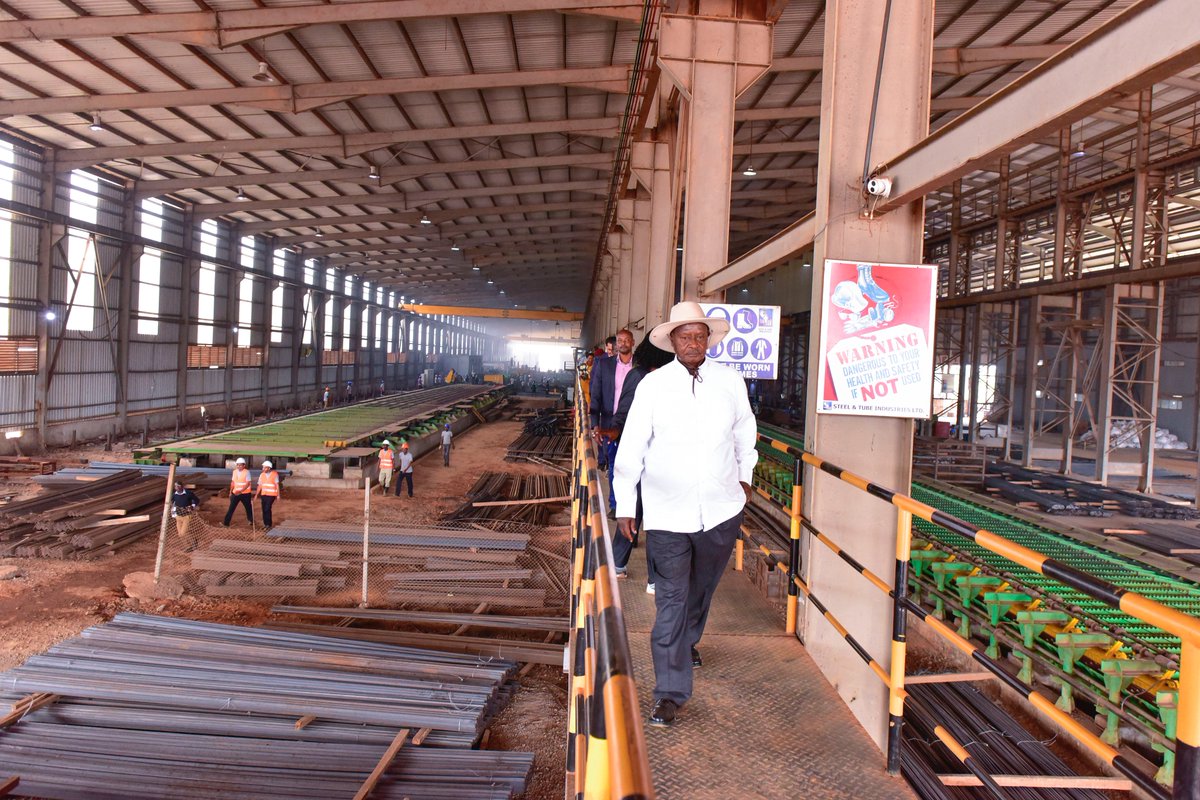 The policy is also expected to increase the share of manufactured exports from 22.5 per cent to 46.8 per cent as well as increase the share of jobs in the industrial subsector from 9.8 per cent in 2019 to 15 by 2030.
The policy is also expected to increase the share of manufactured exports from 22.5 per cent to 46.8 per cent as well as increase the share of jobs in the industrial subsector from 9.8 per cent in 2019 to 15 by 2030.
Government, under the National Industrial Policy, will seek to double the value of Uganda’s industrial capacity as a percentage of Gross Domestic Product from 8.3 per cent in 2021 to 16 per cent by 2030.
This, will push the sector’s contribution to gross domestic product from the current 27.1 to 31.7 per cent in the next 10 years. The objective is to increase public investment and nurturing of industrial development projects in strategic areas and increase the supply of quality raw materials for value addition in the sector. This will be supported by developing a skilled set of human resource to increase productivity, efficiency and accelerate development.
Under the National Industrial Policy, government, through extensive studies and consultation, had identified priority industrial sub-sectors in agro-industries and extractives as the key drivers of the policy.
Specific focus, will be put on fruits, coffee, tea, cassava, cotton, oil seeds, bananas, textile and apparels, grains, sugar cane, cassava, dairy, leather and leather products agro-industries sub-sector while iron and steel, cement, oil and gas salt and fertiliser and sand will also be key focus areas in the extractive sub-sector.

Government, under the policy, will also focus on knowledge-based industries such as automobiles, pharmaceuticals, electrical and electronic products.
The policy is also expected to increase the share of manufactured exports from 22.5 per cent to 46.8 per cent as well as increase the share of jobs in the industrial subsector from 9.8 per cent in 2019 to 15 by 2030.
Government has in the last 10 years pushed for an increase in industrialisation, on which it seeks to turn into an anchor for mass employment and value addition.
The policy, which is also supported by United Nations Development Programme (UNDP), will help to push Uganda’s industrialisation quest, which is highlighted in Vision 2040 and the third phase of the National Development Plan.

The United Nations Development Programme resident representative told Industrial Review that industrialization was key in generating export revenue, jobs, technologies that foster innovation, competitiveness and sustained prosperity.
Therefore, policy makers should consider important enablers for industrialisation such as, skilled labour, digital technology, and a strong science, technology and innovation ecosystem.



